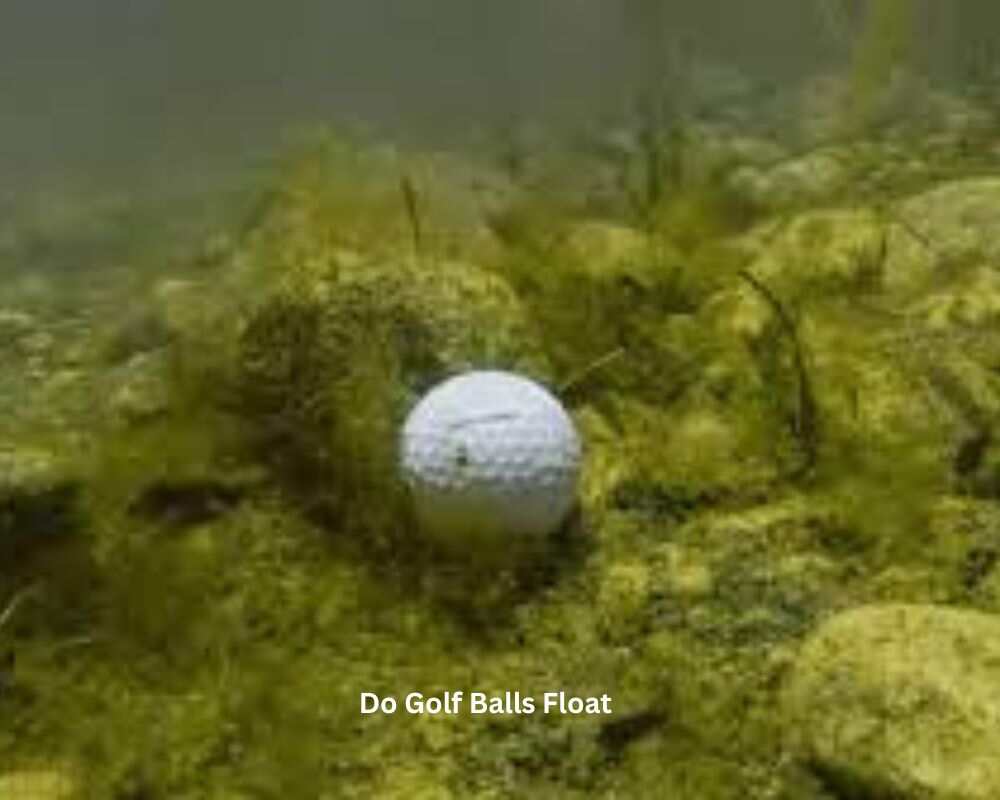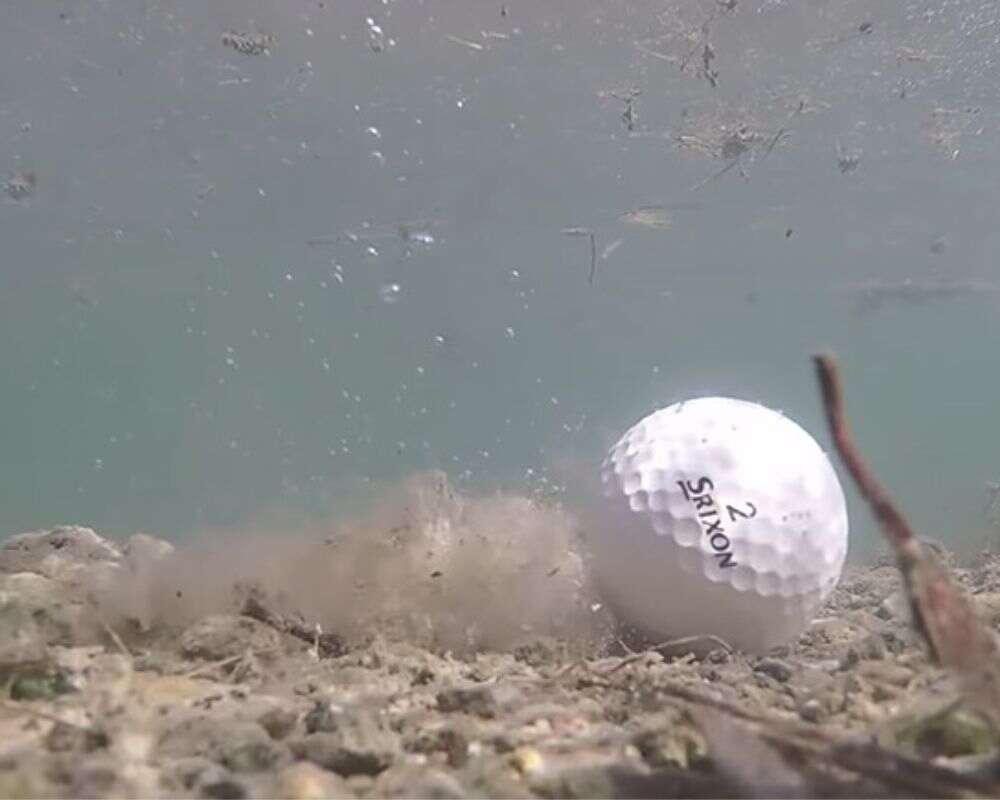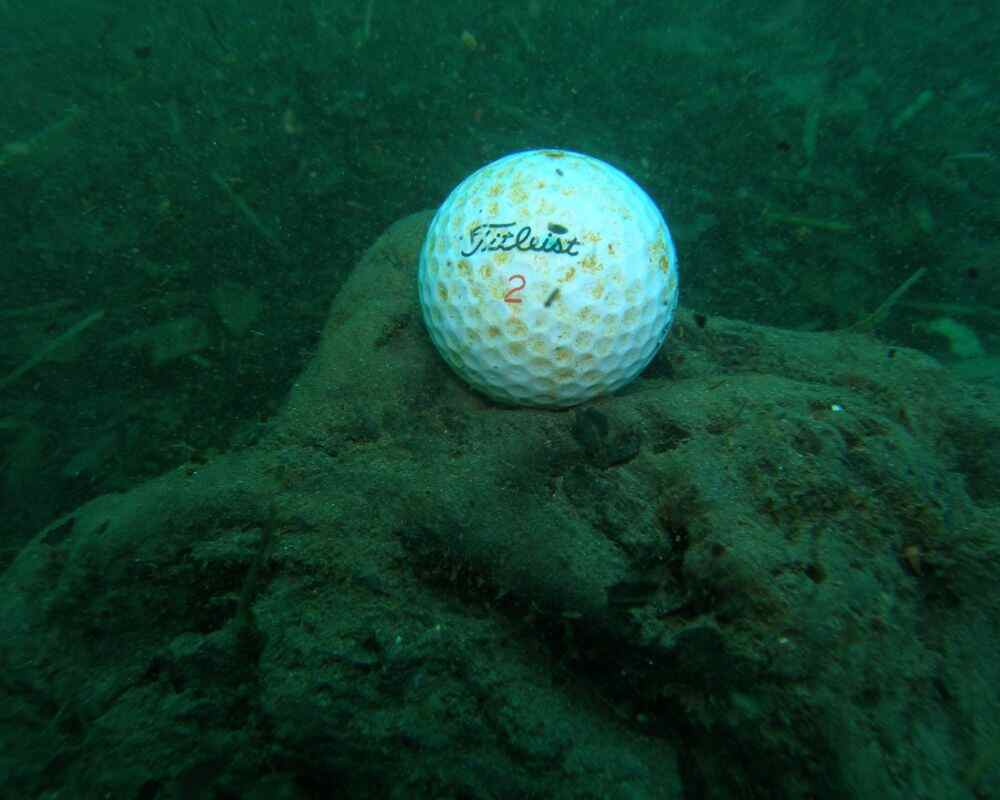While golfing, if your golf ball goes into the water, you may lose it forever if it sinks. So, the question occurs, do golf balls float?
Real golf balls tend to sink once they fall into the water as they are denser than the water. But if you notice that your golf ball is floating, it might be a fake one. Fake golf balls float in water as they are less dense due to their hollowness.
Want to know more? Dive in!
Do Golf Balls Float?

Real golf balls typically do not float in water. This is because they are made with materials that are denser than water. The golf balls are made as heavy as possible to maintain the golf regulations and golfers’ suitability.
That’s why if you drop a golf ball into the water, it will sink. Even if you accidentally swing the ball in the water, you have most likely lost it as it sinks deep. Real golf balls contain a fair amount of mass and remain under 1.62 ounces in weight. The weight doesn’t let a real golf ball float in water.
However, there are fake golf balls used for practice or training which may float in the water. This is because they are less dense and come at a cheaper price. Moreover, if the ball falls into the water during the training session, it becomes easier to retrieve.
Why Do Golf Balls Sink?

The sinking ability of a golf ball can be scientifically explained. The density of the golf balls is the main reason why they sink.
Golf balls tend to be very heavy regardless of their size. The average golf balls tend to be 0.58 ounces per cubic inch. But the density of water is 0.58 ounces per cubic inch. When a golf ball falls into the water, it drowns due to becoming denser than water.
Again, the golf ball’s surface area is very small if you consider its density. That’s another reason why golf balls tend to sink. When something accumulates more density within a small area, it is more likely to sink into the water.
Factors that affect whether a golf ball will float or sink in water
Several factors can affect whether a golf ball will float or sink in water. Some of them are:
- Density: The main factor that works behind whether a golf ball will float or sink is density. If it weighs more and is denser than water, it will never float.
- Material: The golf ball material also affects the sinking. If it is made of denser materials, it won’t float. Again, if it is made of less-weighted materials like foam or plastic, it will float in water.
- Water temperature: A ball is more likely to sink in colder water than when the temperature is high. This is because the cold temperature affects the density of the water and makes it denser.
- Spin: The spin of a golf ball can also affect whether it will float or sink. If the ball is rapidly spinning, it may show some buoyancy and keep it afloat for a moment.
Real Vs. Fake Golf Balls
If you don’t already know the differences between real vs fake golf balls, you might choose the wrong one. So, here are some features to differ:
- Materials: Real golf balls are commonly made of a solid or multi-layered core of rubber or synthetic materials. The weight is heavier than a fake one as the inner portion is stuffed. It is covered with durable plastic or rubber material. But fake ones are made of cheap materials where you can easily notice the differences.
- Structure: Real golf balls has complex construction with concern to the detail of the cover. These are made multi-layered to affect the spinning. But fake golf balls are engineered poorly whereas the quality is average than real ones.
- Performance: You will get professional performance from real golf balls. Due to the expert engineering, they provide a good spin, and trajectory while ensuring all the other factors. Also, these balls are thoroughly tested for quality control. But fake golf balls don’t meet all these standards and may give a poor performance.
- Price: Real golf balls are usually more expensive than fake ones. As they control the quality, performance, and engineering, these all affect the pricing.
- Usage: Real golf balls are meant for professional golfing whereas fake ones are a popular option for practice or casual play.
Is There A Big Quality Difference Between Regular And Floating Golf Balls?

The quality difference between regular and floating golf balls can be enough to distinguish them. The regular golf balls are engineered while maintaining top-notch quality for professionals. That means they check all the concerns thoroughly.
The manufacturers ensure adequate testing of the product to meet regulatory standards like weight, size, and performance. That’s why, real golf balls are usually more expensive than fake ones. They are constructed using high-quality materials and advanced construction techniques.
Due to the construction, the real golf balls can give the golfer n upper hand during the game. They enhance the performance, which can result in better spin, distance, and accuracy.
But fake golf balls, as in, floating golf balls are meant to be used in casual golfing and training. That’s why, they don’t care much about the quality. So, these are not tested that well to maintain quality standards.
FAQs – Do Golf Balls Float
Do Golf Balls Float In Saltwater?
If you ensure that the saltwater is denser than the golf ball, you can make it float. But usually, a golf ball is not as dense as saltwater. So, you can make the golf ball float in there without doing anything.
Can Golf Balls Go In The Ocean?
Although golf balls can float on saltwater denser than them, if they hit the ocean, they still cannot float. If a golf ball falls into the ocean, it immediately sinks.
When Will A Golf Ball Float In?
You can make golf water float in liquids denser than its density. Usually, they float in saltwater. But if you want to make it float in your pool, you need to ensure the water density is more than the golf’s density.
What Happens If Golf Ball Falls In Water?
You will receive a one-stroke penalty if your ball falls into the water during golfing. In such cases, the ball is considered a water hazard if it touches the yellow mark or remains within the mark.
Conclusion
As for your answer to do golf balls float, we shared many interesting factors. Golfing can be enjoyable until your ball touches the water.
If you are using a fake golf ball, you will be lucky to retrieve it. But for the real ball users, the ball will be gone into the waters!
Related Posts
